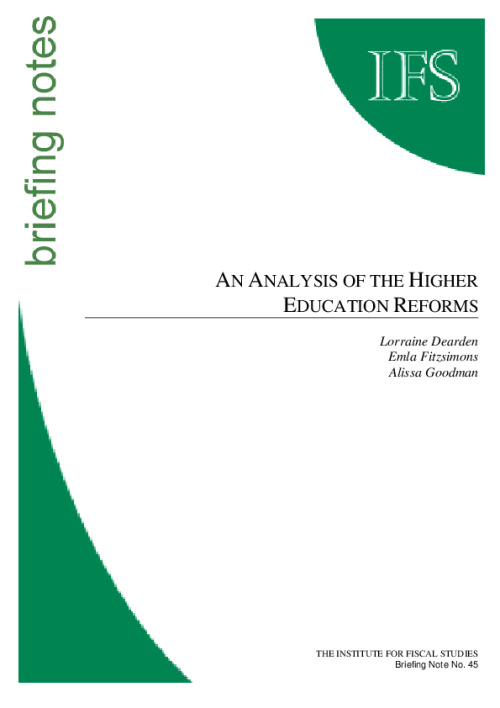An analysis of the higher education reforms
- Lorraine Dearden
- Emla Fitzsimons
- Alissa Goodman
Published on 2 January 2004
The Government's plans for reforming Higher Education (HE) funding have been a source of great controversy. Much of this controversy has been focused on what the reforms will mean for students from different family income backgrounds, and on the levels of debt they may need to incur to go to higher education. Concern has also been raised about how graduates will be affected by these debt repayments throughout their working lives, as well as whether or not the funds raised will improve the situation of universities significantly. This Briefing Note addresses these issues, as well as describing the evolution of the proposed reforms to Higher Education funding in recent months. In doing this, we set out and explain the system which is most likely to be implemented if the HE Bill is passed, and discuss the ways in which students, graduates, and universities are likely to be affected. We also consider the possible effects on the taxpayer.











